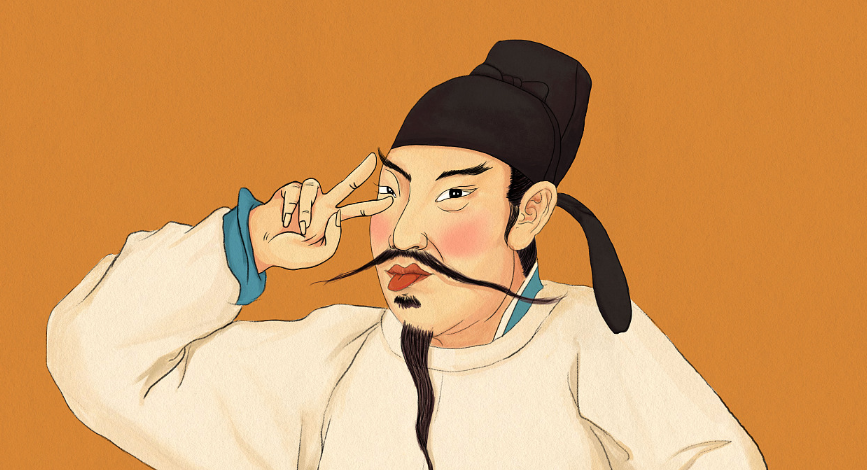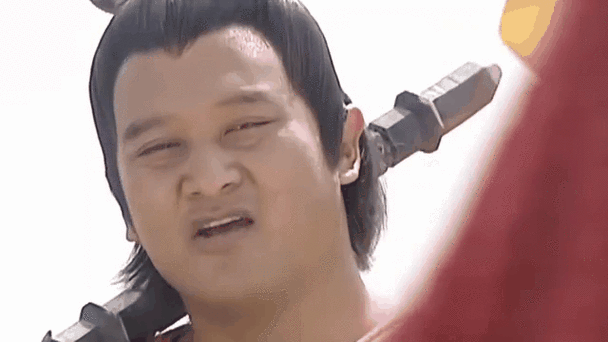Wang Changling, also known as Shaobo, was a famous border poet of the Tang Dynasty. He had close contacts with Li Bai, Gao Shi, Cen Shen, and others. Wang Changling’s poetry is known for its seven wonders, which have a high status and influence in the history of Chinese literature, and are hailed as the “holy hands of the seven wonders”. Let’s learn about the story of Wang Changling together with the History Encyclopedia editor.

The prosperous Tang Dynasty was a golden period for the development of Tang poetry, during which the most poets and poems emerged. At the same time, poetry during the prosperous Tang Dynasty had already matured and become standardized. The poetry of the prosperous Tang Dynasty did not have the extravagance and emptiness of the poetry of the early Tang Dynasty, nor did it have the melancholy and decline of the poetry of the late Tang Dynasty. At that time, the Tang Dynasty was at its peak, and the poets were full of vigor and vitality. Li Bai, Gao Shi, Cen Shen, Wang Wei, Meng Haoran and others were representative poets of that period.
Below, we will talk about this poet who was also a poet during the prosperous Tang Dynasty. In the star studded Tang Dynasty, he rose to the peak of Tang poets with his seven character quatrains. The quantity and quality of his seven character quatrains are still highly praised today. He is also known as the “Seven Absolute Holy Hand” because of this, and he is the “Poet Emperor” – Wang Changling.
Wang Changling was born in Taiyuan, Shanxi in 698 AD. Wang Changling comes from a poor family, but he has loved reading since childhood. From a young age, he aspired to pass the imperial examination and enter the officialdom, shining brightly in his family. In 727, Wang Changling went to Chang’an to participate in the imperial examination. In Chang’an, the two people with the highest level of Tang Dynasty seven character quatrains met. He met a close friend – Li Bai, and the two admired each other, thus forming a deep friendship. This year should be the most glorious year for Wang Changling, as he made good friends and achieved great success.

Wang Changling, who entered the officialdom, should have been proud of his achievements, but unfortunately, he caught up with the emperor’s lack of talent, which led to Wang Changling’s lack of success. Not only that, Wang Changling has been repeatedly demoted and his career has been extremely bumpy. With the ambition of serving the country in vain, his official position has become smaller and smaller. However, Wang Changling is fortunate because he has been repeatedly exposed to the outside world, which has provided him with material and spiritual soil for his poetry creation, and has also made many close friends, such as Wang Zhihuan, Gao Shi, Cen Shen, Meng Haoran, Wang Wei, Qi Buqian, Li Qi, and others. Each friend is a great poet who has shaken the past and present.
740 was the truly happy year of Wang Changling’s life. That year, Wang Changling traveled to Xiangyang and heard that Meng Haoran was there at the time. Wang Changling admired Meng Haoran for a long time and never had the chance to meet him. This trip to Xiangyang brought together one of the greatest frontier poets and one of the greatest landscape and pastoral poets. Upon hearing of the visit of the ‘Poet Emperor’, Meng Haoran was overjoyed and prepared good wine and dishes to entertain Wang Changling. Meng Haoran was naturally cheerful and sincere, and he treated his friends with deep affection. That day, Meng Haoran did not follow the doctor’s advice and accompanied Wang Changling to have a meal of fish. Shortly after the meal, Meng Haoran passed away. The death of Meng Haoran made Wang Changling feel guilty for his whole life, and he still sighed deeply for Meng Haoran’s sincere feelings in his later years.
After visiting Meng Haoran, Wang Changling continued his travels. Xiangyang has been a famous city since ancient times, and in Xiangyang, he met another representative of a frontier poet – Cen Shen. The two of them fell in love and enjoyed each other over drinks, forming a deep friendship. In 740 AD, Wang Changling left Xiangyang for Luoyang, where he met Qi Buqian and Li Qi successively. Traveling through life has exposed Wang Changling to too many poets, and has also prompted him to write numerous farewell poems. According to statistics, Wang Changling created nearly 200 poems in his lifetime, of which 181 remained. Among his few poems, there are fifty-two farewell poems, accounting for about a quarter.
In addition, during the prosperous Tang Dynasty, before Du Fu, seven character quatrains were popular, and Wang Changling was an expert in this field. He devoted his life to creating seven character quatrains, with a total of 74 of them accounting for one sixth of the quatrains of the prosperous Tang Dynasty. What is commendable is that Wang Changling not only had a large number of Seven Treasures, but also had extremely high quality. Therefore, later generations called him the “Holy Hand of Seven Treasures”. Throughout the Tang Dynasty, it is estimated that the level of Seven Treasures could only be compared to Li Bai.



